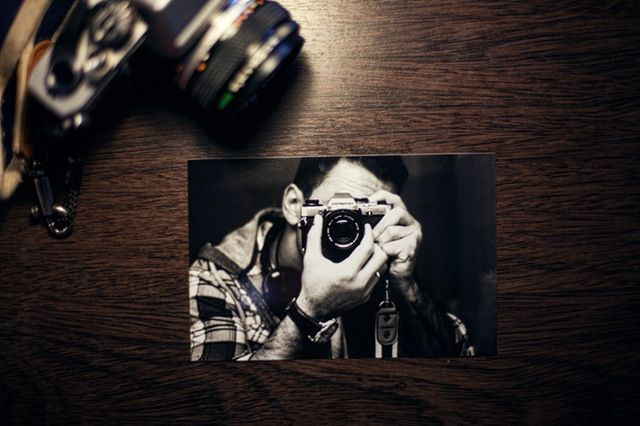Selfie Addiction: People Who Post Self-Potraits On Social Media Are Extroverted, Social Exhibitionists

Whether it's getting ready to go to work, go shopping, or out for a night on the town, there are many opportunities where the impulse arises to take a selfie. About two billion photos are uploaded to Facebook, Instagram, Flickr, Snapchat, and WhatsApp every day, with millions of them being our own selfies, or self-portraits. But why do we take so many selfies and upload them on these social media sites?
In an effort to explore this concept, psychologists from Germany and Poland delved deeper into the personalities of selfie sharers in two studies involving over 1,200 men and women. For the first study, about 750 men and women were asked to count the number of selfies they had posted to social media in the last month. The participants also completed three personality questionnaires: the Rosenberg Self-Esteem Scale, the Extraversion Scale of the NEO-Five Factor Inventory, and the Murray Social Exhibitionism Index.
The participants reported posting up to 350 selfies featuring only themselves, up to 100 selfies with a relationship partner (so-called “relfies”), and up to 200 group selfies with friends. When compared to men, who only posted an average of 3.3 "own" selfies per month, women uploaded an average of 6.7. The biggest disparity was seen in group shots — women posted an average of 6.1 group selfies per month, while men posted only about 2.6. No significant difference was found in the rate of relfie posting for women or men, however, with 1.2 per month and 1.72 per month, respectively.
So, what personality types are more likely to upload selfies?
Based on the personality tests, the researchers found men and women who scored high on extraversion and social exhibitionism posted more selfies. Surprisingly, there was no relationship between selfie posting and self-esteem. Men and women who have a huge ego or are ridden with self-doubt are no more or less likely to share selfies. However, previous research has found a link between heavy Facebook use and low self-esteem and narcissism.
Now, since the total number of selfies was based on self-reported data, the researchers conducted a second study. They recruited research students to count all the selfies that their Facebook friends had posted to their profiles. These were also categorized as either own selfies, relfies, or group selfies.
The findings revealed there was a link between self-esteem and selfie posting among men. Those who thought highly of themselves tended to post more own selfies, although there was no relationship between self-esteem and the frequency of posting relfies or group selfies. The researchers suspect the differences in results from these two studies could be explained by the measurements they used for selfie-related activity. For example, in the first study, the researchers measured selfies using a wide range of social media sites, including Facebook, Twitter, Instagram, and WhatsApp. Meanwhile in the second study, only Facebook was used as a measurement. The researchers can only speculate Facebook is more intriguing to self-absorbed men as a forum for sharing selfies.
Despite the findings, the link between self-esteem and online social media is still uncertain. Researchers don't know if men's high self-esteem drives them to post more selfies or if posting these selfies and seeing them liked by friends is what boosts their self-esteem. “On the one hand, people with high, stable self-esteem might be eager to share their photos because they are not susceptible to criticism. On the other hand, people with low self-esteem might be even more willing to engage in online self-promotion in order to raise their self-esteem,” wrote Agnieszka Sorokowska, lead author of the study from TU Dresden in Germany, in the study.
It seems growing use of social media sites is making us more concerned with our appearance. People are even getting surgery just to have the perfect selfie. It might not be long before our obsession with selfies soon evolves from being a vanity issue to a mental health issue.
Sources: Sorokowska A, Oleszkiewicz A, Frackowiak T et al. Selfies and personality: Who posts self-portrait photographs? Personality and Individual Differences. 2016.
Fox J and Rooney MC. The Dark Triad and trait self-objectification as predictors of men’s use and self-presentation behaviors on social networking sites. Personality and Individual Differences. 2015.



























